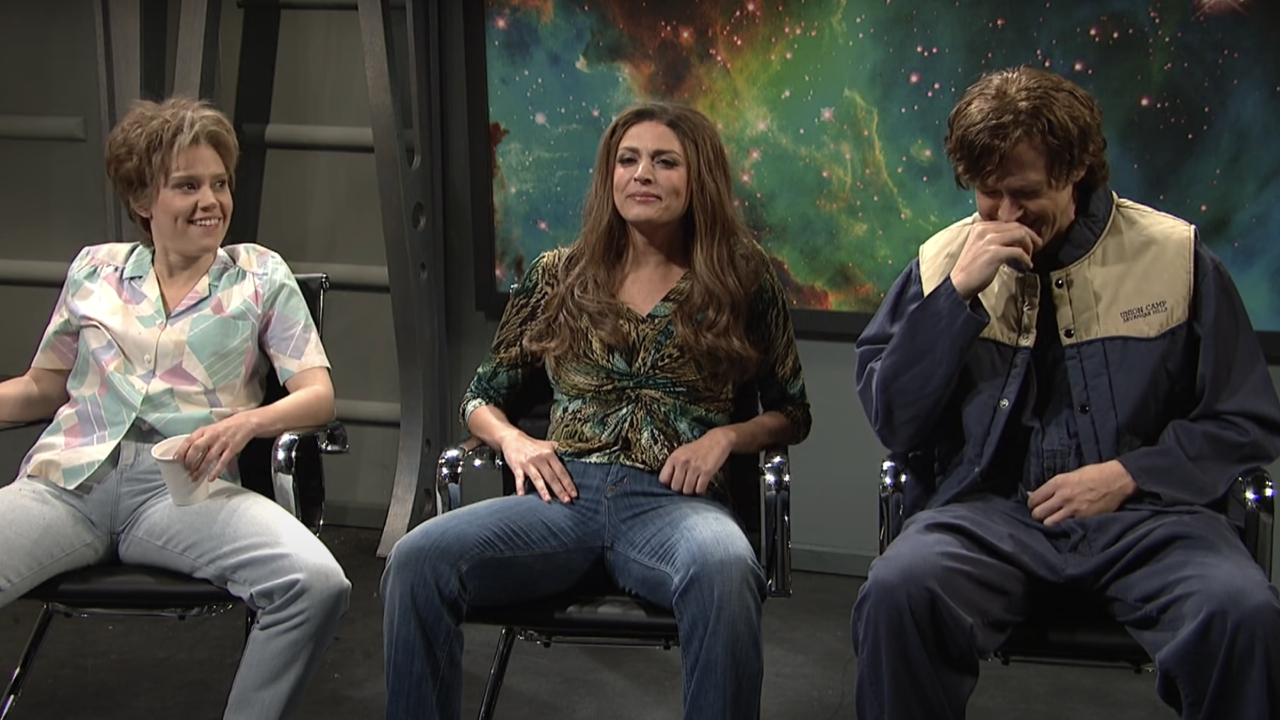The 11 Biggest Things Wrong With Glass
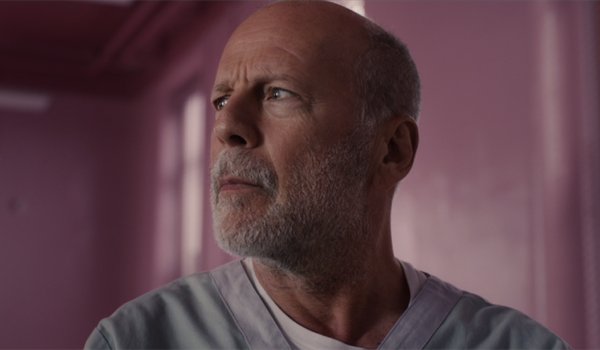
Your Daily Blend of Entertainment News
You are now subscribed
Your newsletter sign-up was successful
SPOILER WARNING: The following article contains major spoilers for the ending of Glass. If you have not yet seen the film, continue at your own risk.
M. Night Shyamalan is certainly capable of both writing and directing a good film, and has proven it a few times during his career. Glass, however, is not a positive example of what he can do behind the camera. Instead, his follow-up to Unbreakable and Split is actually a total mess -- and while there are some redeeming qualities (primarily James McAvoy's performance), the reality is that the movie culminates as little more than an assortment of stupid problems and plot holes that make up a pointless and bad story.
Having seen Glass last week and been dissecting it in my mind ever since, I've accumulated a list of questions inspired by the experience that serve to show just how little sense the film actually makes. Both on a large and small scale, the movie is ridden with problems that infect basically every aspect of the story, and make you wonder how they wound up in the finished product. So without further ado, let's get into it...
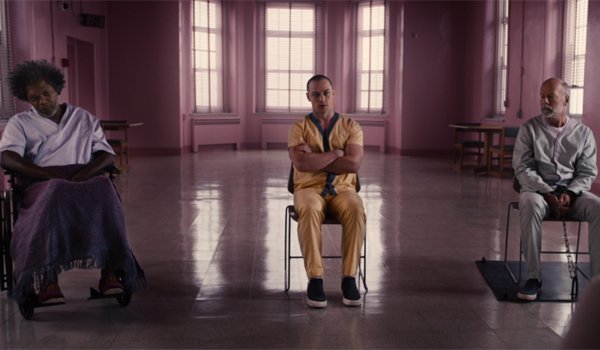
Why didn't the Black Clover Society just kill them at the start?
Let's cover the big one first, shall we? At the end of Glass, Dr. Ellie Staple makes the call to have David Dunn, Kevin Wendell Crumb, and Elijah Price killed -- revealing that she is a part of an organization not only aware of superheroes, but in charge of subduing them. She explains that her initial plan was to try and convince them superpowers aren't real, but finds herself forced to take fatal measures when that doesn't work. The question, though, is why the hell would she go through all that trouble? At the end of the day it doesn't exactly seem like she has much of a moral quandary about the development, so why even bother with Plan A and not just kill all three of them as soon as they were brought into the hospital? If the only answer is "because then it would be a 20 minute movie," then that is a serious problem -- and that's the only possible response I can think of.

Why would David Dunn ever believe superpowers are just in his mind?
When we catch up with David Dunn in Glass, it's made clear that he has been operating as a superhero for all of the 19 years since we last saw him, with the press even dubbing him The Overseer. That's a lot of time for him to be utilizing his super strength and minor psychic abilities... and yet Dr. Staple is nearly able to convince him that it's all in his head? This suggests that either David is super gullible and stupid, or that M. Night Shyamalan developed this concept without ever accounting for the massive timeline gap -- and I lean toward the latter explanation.
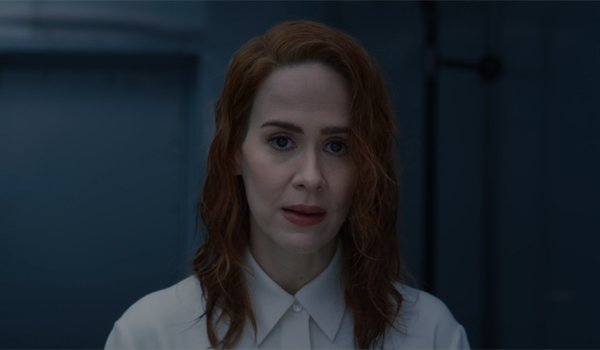
Why would the audience ever believe superpowers are just in the characters' minds?
Even if David Dunn never started believing that his superpowers weren't real, the general idea of this entire plot is ridiculous -- mostly because it totally goes against the entire philosophy of the series. The whole point of Unbreakable and Split is the idea of advanced individuals living in a grounded reality, and as many bad instincts as there are on display in Glass, that's one twist that you know in your heart M. Night Shyamalan isn't going to implement. It's to his credit that the film doesn't actually fully commit to this path, and is better for it -- but the choices made instead definitely aren't much better.
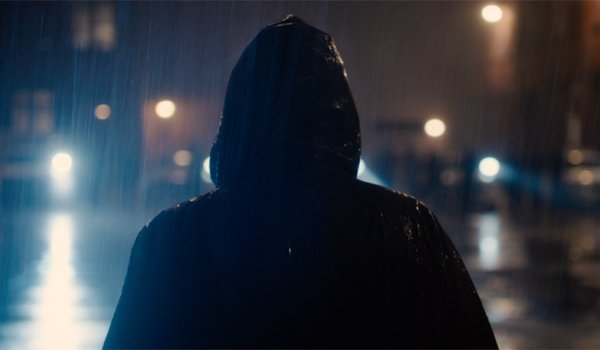
How did the police know where Kevin and David were?
Glass needs to have both David Dunn and Kevin Wendell Crumb incarcerated in the beginning of the film in order for the plot to start, but the way the movie goes about making this happen doesn't make any sense. David is doing his lone wolf vigilante thing when he discovers Kevin's hideout, successfully rescuing three young women, and it's only when the duo crash through a window that we discover the police are outside, equipped with special hypno-lights to control The Beast. It's totally unclear how the police knew where to be and what equipment to use -- and even if it was the Black Clover Society controlling the operation you have to wonder a) why they would wait for the two to come together instead of just moving on Kevin at first opportunity, and b) if they were willing to let the kidnapped women die if David didn't find them in time.
Your Daily Blend of Entertainment News
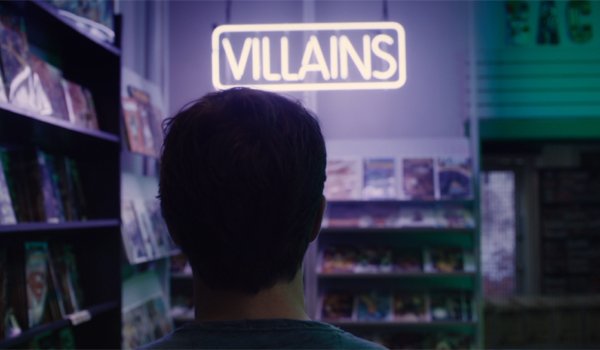
Why is Joseph so excited about Kevin's dad if he doesn't know Mr. Glass and The Horde are teaming up?
Trying to learn more about The Horde, Joseph Dunn is incredibly excited when he learns that Kevin's father was killed in the Eastrail 177 train wreck, and shortly before the start of Glass' third act he excitedly sprints from his computer so that he can quickly bring this news to the hospital. This is an interesting tidbit for fans, especially those who guessed the connection while watching Split, but it's also a sloppy revelation in the film. Joseph ultimately tells Kevin about what happened to his father in hopes of trying to break his partnership with Mr. Glass... but the problem with this is that there is absolutely no way he knew about the partnership before arriving at the hospital. It very much feels like M. Night Shyamalan didn't know what do with this standing domino and wound up cheating by pushing it over with his finger.
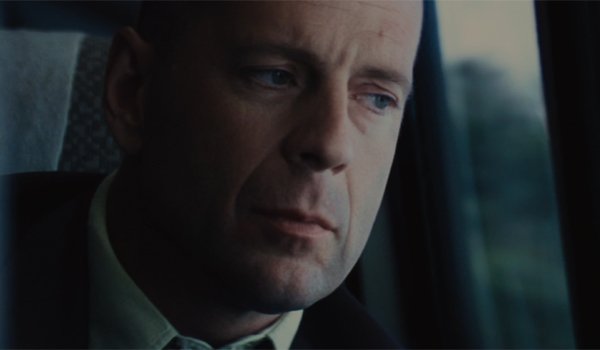
Why doesn't Kevin know that Mr. Glass is responsible for killing his dad?
On the other side of the revelation about Kevin Wendell Crumb's father, one has to wonder why it was ever really a revelation at all. Kevin surely knows that his dad died in the Eastrail 177 disaster, and presumably it made at least national news when it was revealed that Elijah Price a.k.a. Mr. Glass orchestrated the whole thing. So why didn't Kevin already have an awareness of who Mr. Glass was, and perhaps even have a specific vendetta against him? It's saved as a twist in the movie, but it doesn't track logically.
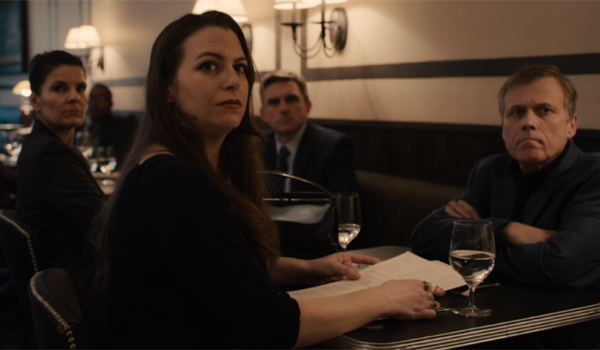
Why is David's vision of the Black Clover Society surveillance footage of a restaurant?
In addition to being super strong, David Dunn also has some minor psychic abilities that allow him to see the shady activities of anybody he touches. It's used early in Glass to allow David to identify Kevin Wendell Crumb and save three lives -- but the second time its put into action is completely nonsensical. You'd think that David touching Dr. Staple at her request (also: why?) would allow him to fully understand the mission of the unnamed Black Clover Society, but instead what we get simply looks like security footage from a restaurant that goes silent in an instant. What exactly was David, let alone the audience supposed to take away from that? What is the sin on display? It doesn't make sense, and does nothing to help this movie's disastrous third act.
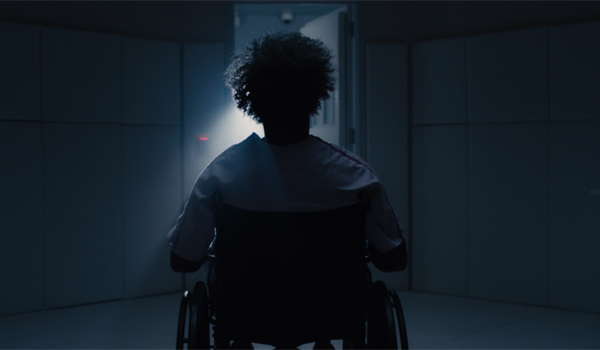
Why is the titular character seemingly catatonic for half of the film?
With Unbreakable being about David Dunn, and Split about Kevin Wendell Crumb, it seemed logical that Glass would be Elijah Price's time in the spotlight -- but that is in no way the case. While it's true that the character is pretty active at the conclusion of the story, even all while just sitting and watching all the action, it seems crazy that he spends what feels like more than half of the film in a catatonic state. The stupidity of this is stretched even further because the audience is totally aware that he's faking it, but really it's just stupid on a general level. With the water and light systems set up in David and Kevin's respective rooms, you'd think that the film would be able to come up with something more creative for Elijah, but... nope.
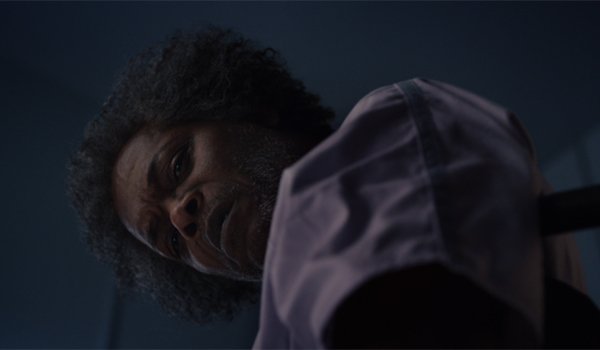
Why does this story never get to the skyscraper?
I get it: what M. Night Shyamalan does with the state-of-the-art skyscraper in Glass is meant to be misdirection. The building is talked about ad nauseam throughout the movie, meant to be read as obvious foreshadowing, but then the writer/director pulls an "a-ha" by never actually letting the story go there. The problem is that it kind of sucks that the film never gets to the skyscraper. This kind of rug pull only would have worked if Shyamalan had set up something even better than the suggested plot -- but what it delivers is the lame combination of cameras in a basement and a fight on a front lawn/parking lot. More than anything, it makes the film look cheap.
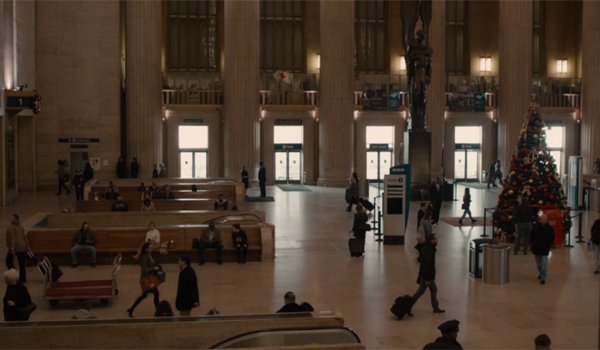
Why would anyone care about the released footage?
After killing off all of its major characters, Glass still tries to have an uplifting ending by having Joseph, Casey, and Mrs. Price release security cam footage of the movie's "climactic battle," and said footage begins to spread virally right before the credits roll. The question is: why would this happen? For starters, the world should apparently be used to the idea of superheroes existing thanks to 19 years of The Overseer, but even if people don't know about that, why would this video convince anyone of anything? The internet age is one of incredulity, and surely at least a fraction of viewers wouldn't take it seriously without evidence suggesting its reality. Plus, the battle between David and Kevin is basically strong guy vs. strong guy, and doesn't really feature anything all that extraordinary.
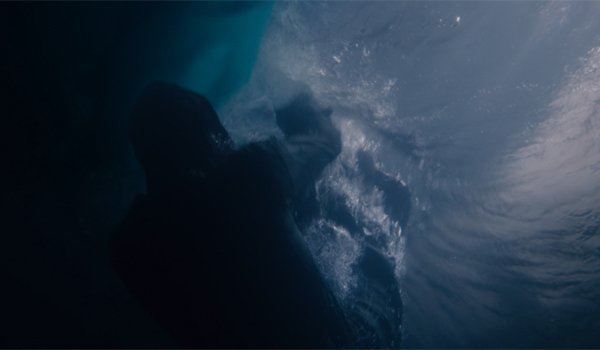
Did anyone want to see this trilogy end with David Dunn drowned in a puddle?
We can all be happy that M. Night Shyamalan didn't feel that the best way to end this trilogy was to show that superpowers aren't real, but the end result we get is arguably just as terrible. While it's true that seeing the good guys win in superhero movies in a classic trope, it's hard to understand why the writer/director felt that the proper way to conclude this story was by having the lead character drowned in a puddle. I suppose it's some definition of "edgy," and certainly unexpected, but also completely unsatisfying as a conclusion to the trilogy.
These are all the biggest questions we are left asking about Glass, but they don't end there. If David's strength was all in his head, why did he need to be chained up during therapy? Why could nobody tell that Mr. Glass' surgery was completely ineffectual? What was the point of that flashback scene with young Elijah at the carnival, other than the opportunity to use a deleted scene from Unbreakable? Why did it take the Black Clover Society 19 years to capture David? This is a movie riddled with problems, and while it's guaranteed that it will have its defenders, I'm curious how any of them would argue its case against the points above.

Eric Eisenberg is the Assistant Managing Editor at CinemaBlend. After graduating Boston University and earning a bachelor’s degree in journalism, he took a part-time job as a staff writer for CinemaBlend, and after six months was offered the opportunity to move to Los Angeles and take on a newly created West Coast Editor position. Over a decade later, he's continuing to advance his interests and expertise. In addition to conducting filmmaker interviews and contributing to the news and feature content of the site, Eric also oversees the Movie Reviews section, writes the the weekend box office report (published Sundays), and is the site's resident Stephen King expert. He has two King-related columns.
